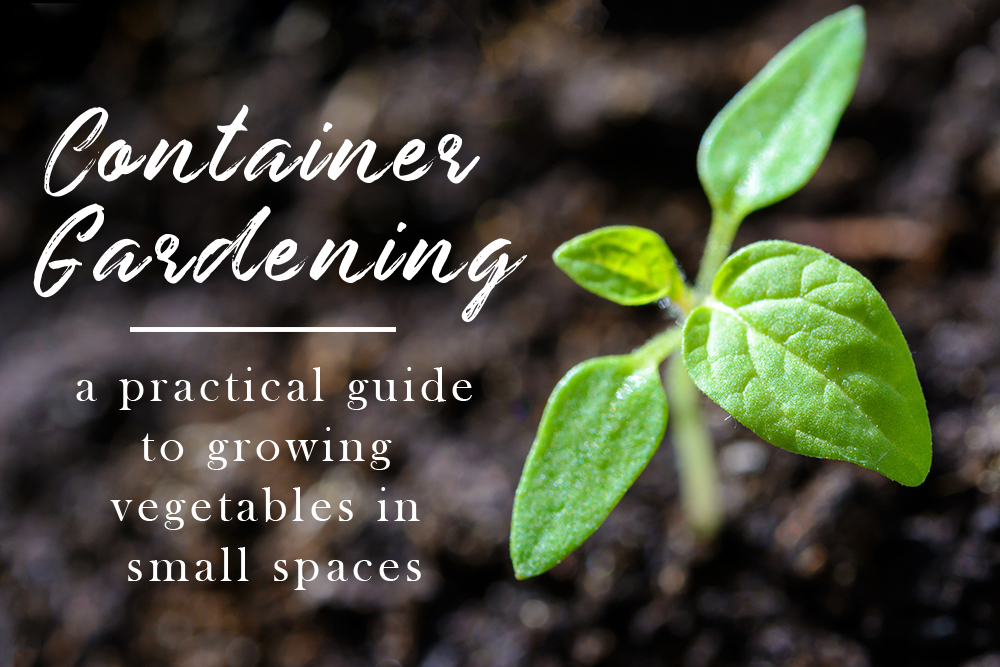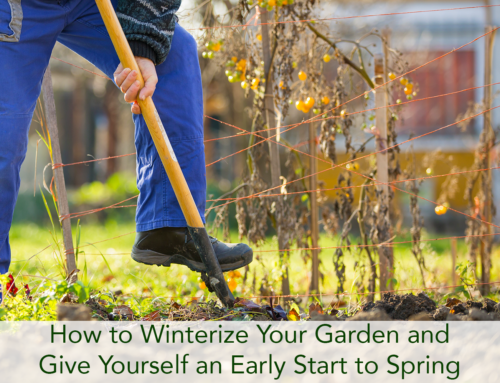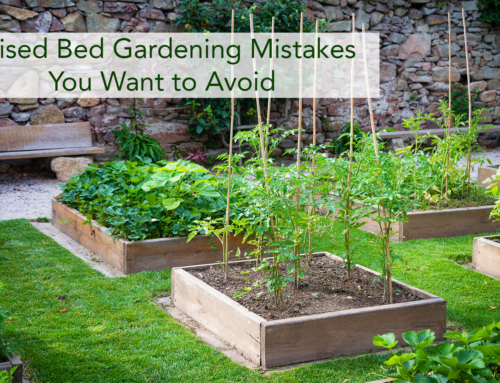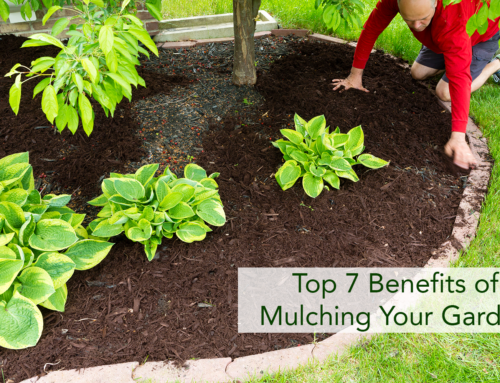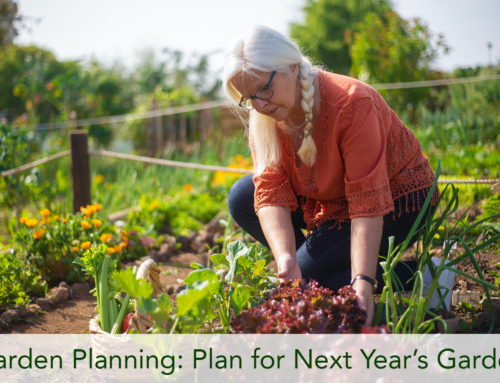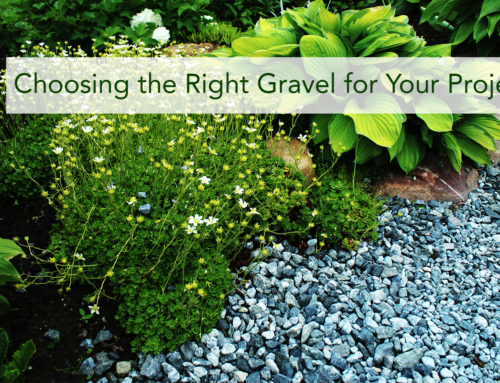Not everyone has the luxury of having a big backyard or lots of space for a larger scale vegetable garden. But you can still grow great vegetables in small spaces, even on an apartment balcony or patio. You just need to know the right vegetables to choose and how best to care for them in a smaller space. And if you already have a larger garden, container gardening can extend your growing space! Many vegetables, herbs, and flowers can be grown together when container gardening. Some plants even provide benefits to each other when they are grown together.
Choosing a container
Choosing a the right pots and other containers when container gardening is very important. You don’t want your plants to become too root bound as this will cause them to use up water faster. It’s easier to grow vegetable plants in larger containers than smaller ones. A lot of vegetables are tropical plants and need consistent moisture. Growing them in a larger pot is easier because the larger amount of soil in larger pots holds more water. Because it can hold more water, moisture sticks around for longer. This is especially good for growing vegetables in western Colorado. We live in an arid climate and need to keep those plants well watered.
Whatever container you choose, make sure it has sufficient drainage. You don’t want your plants to dry out too much but you also don’t want them to drown. Plants need oxygen, most even need at least some at the roots. When the soil is too waterlogged it deprives the roots of oxygen and will drown the plant. Sometimes when a plant wilts, it’s not because of too little water, it can be because of waterlogged soil.
There are many different materials that containers are made from as well. Unglazed terracotta pots are beneficial as they tend to have an evaporative cooling effect so roots don’t get too hot. But they can break more easily if they are dropped and are prone to crack in freezing weather. It also tends to dry out more quickly which can be good or bad. Cast concrete containers are very tough but they tend to be heavy. These containers have a modern, clean look and can be left outside in freezing weather. Plastic and fiberglass containers are more affordable and tend to keep moisture in. Foam containers can be found that look like the cast concrete or terracotta pots, but they are more affordable and much more lightweight. Wood is very natural looking and protects roots from rapid temperature fluctuations. Be sure to choose a rot resistant wood such as cedar. We suggest avoiding metal containers as these kinds of containers conduct heat and can expose the roots to rapid temperature fluctuations.
Selecting your plants
You can grow just about any tree, shrub, herb, or vegetable in a container. If you can, select dwarf trees and shrubs and compact varieties of vegetables. When shopping for vegetable for containers, look for vegetable plants that are described as determinate. This is especially used to describe tomato plants. Determinate means that the plant will grow to a certain size and then it will continue growing but won’t get any bigger. Indeterminate plants just keep growing and growing and can get very large.
Themed gardens can be fun to try. You can either use one large container or many smaller ones. Try planting a salsa garden with tomatoes, various types of peppers, and some onions. There’s nothing like making some fresh salsa from your garden! Or try planting some spinach, kale, and lettuce together for a salad garden. For some extra color, you can even include some edible flowers such as pansies and nasturtiums. Many different herbs are pretty all by themselves and can add great accents while also providing delicious flavorings.
Caring for container gardens in Colorado
Since Colorado, especially western Colorado, is a more arid climate, you really have to be mindful of keeping container gardens well watered. Water your plants often. How often depends on many factors such as pot size, type of soil used, the type of plants, and the weather. Don’t let the soil totally dry out. When the soil is completely dry, it becomes difficult to rewet. Use mulch to help contain the moisture within your container gardens.
Your plants will also need fertilized regular for them to produce their best. Be sure and use food safe fertilizers like some of the organic options we have to offer, or use a mix of potting soil and compost. Since containers are likely to be a focal poiint, you’ll want to take extra good care of them to keep them looking their best!
When you’re ready to start your container garden, come see us for all your gardening needs! Contact us or stop by and see us!

